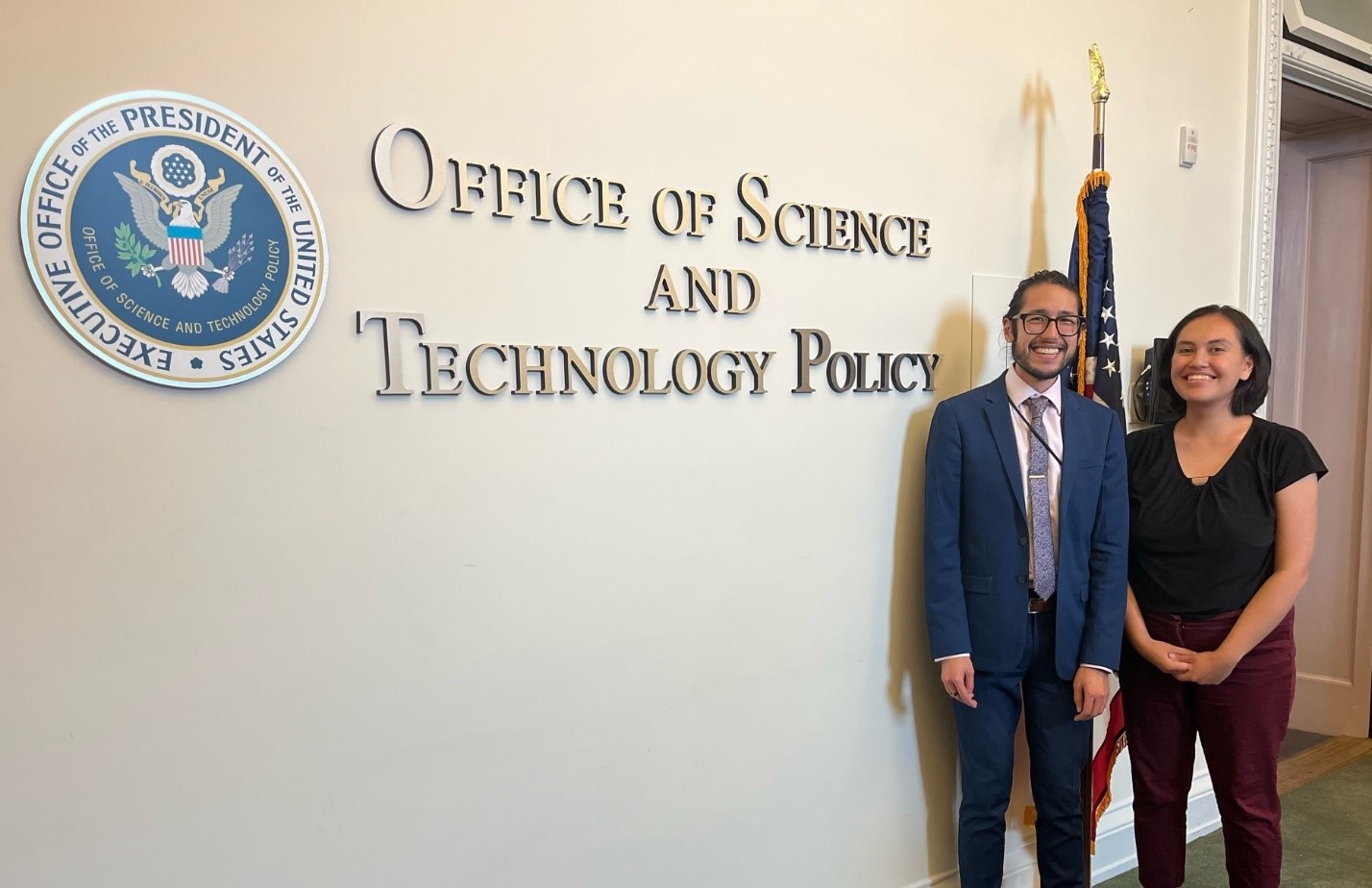In June 2013, Secretary Vilsack outlined a vision for agricultural solutions to environmental challenges, which included creating the Regional Climate Hubs. In 2014, the USDA Climate Hubs were established in to serve as regional centers of climate change information and outreach to reduce risks. The Climate Hubs enhance USDA capacity to deliver science-based knowledge and practical information to support climate-informed decision making on farms, ranches, and forests.
Early career professionals joined the Hubs to hone their science communication and engagement skills while supporting the Climate Hubs’ mission. In 2016, Climate Hub Fellows focused on co-developing science-based information to help land managers make climate-informed decisions. Likewise, Hubs brought on interns and post-doctoral researchers. Climate Hubs were able to enhance engagements among land managers and scientists to co-develop science and technology. To mark the 10-year anniversary of Secretary Vilsack sharing his vision for the Climate Hubs, we share two highlights.
Dr. Julian Reyes was a Climate Hub Fellow (2016-2019) with the Southwest Climate Hub. During his fellowship, he developed, AgRisk Viewer, which empowers decision makers to assess their climate risks by commodity type at the county scale using long-term crop insurance data from Risk Management Agency. This tool identifies areas of agricultural production risk due to extreme events to help target locations for adaptation actions.
Haley Case-Scott was a Resource Assistance Program intern with the Northwest Climate Hub. During Haley’s internship, she engaged with Tribal Nations supporting government-to-government consultation for the 25th update to the Northwest Forest Plan. Haley also developed communication materials to share information about USDA programs that could support climate adaptation and mitigation.
Both Reyes and Case-Scott have also worked with the White House Office of Science Technology and Policy (OSTP) to provide clear, useful, and useable science and knowledge to inform the Administration’s climate, environment, and nature actions and initiatives.
“Communities and decision makers need actionable and usable climate information and services. My time with the USDA Climate Hubs has shown the power of co-production ensuring community voices are embedded in our place-based, people-centered work. These perspectives have also helped me in my work at OSTP,” Reyes said.
“Serving as a Resource Assistant Program intern with the USDA Northwest Climate Hub was a great experience. It allowed me to take a deep dive into how the federal government works, and provided me the tools needed to build my professional career,” Case-Scott said.
The Climate Hubs continue to build capacity to support climate-informed decision making on farms, ranches, and forests.

